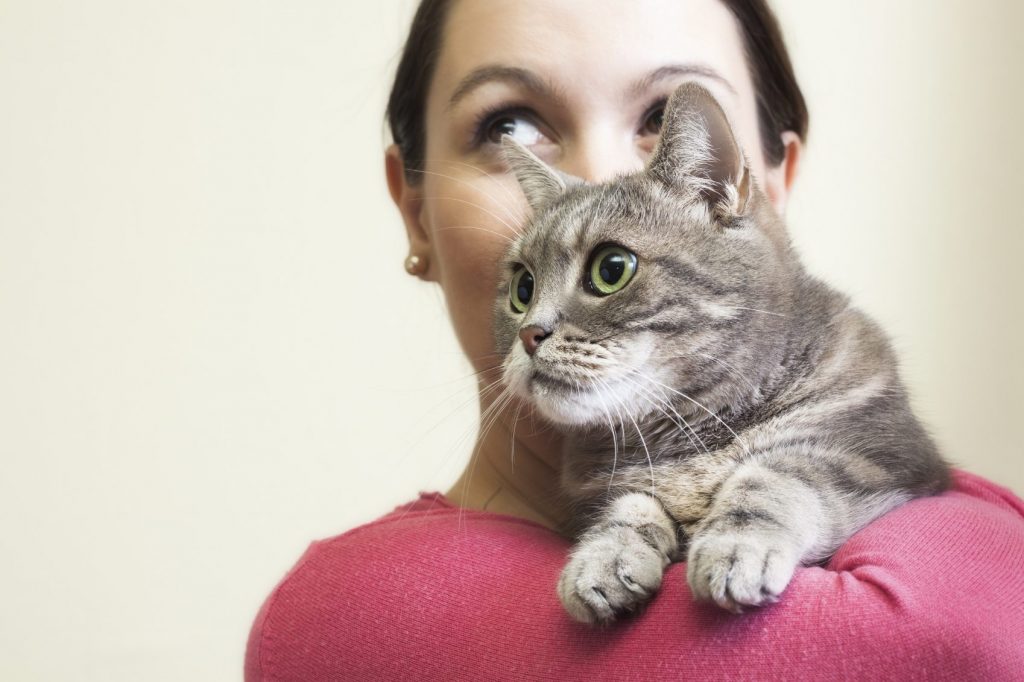Toxoplasma gondii (T. gondii) is a parasite carried by cats that can infect any warm-blooded mammal. According to the U.S. Center for Disease Control, approximately 60 million people in the United States may have it. T. gondii has been blamed for a series of problems ranging from long term flu-like symptoms, to miscarriages, fetal development disorders, blindness, and death. It has also been associated with multiple mental disorders such as bipolar disorder and schizophrenia.
Reduce Your Risk Factors
The best way to protect yourself is the change your cat’s litter box daily. It takes oocysts 1 to 5 days to become infectious, so keeping the litter box clean significantly reduces your chance of infection, in addition to wearing disposable gloves and washing your hands thoroughly afterwards. You can protect children by keeping your cat exclusively indoors to reduce the risk of your cat contracting T. gondii.
- gondii is especially dangerous for young and unborn children, so health officials counsel pregnant women to avoid cleaning litter boxes altogether. Doctors often counsel pregnant women to leave cleaning the litter box for their partners as a safety precaution.
Exposure to Toxoplasma gondii
The Academic Medical Centre in Amsterdam performed a study that found that people infected with T. gondii are twice as likely to develop schizophrenia as those who do not have the parasite. Children who are exposed have an increased risk factor for developing multiple mental disorders as they mature. That doesn’t mean children should never spend time around cats; it means we need to raise awareness for Toxoplasmosis and the simple protection methods we can use.
Crazy Cat Lady Syndrome
The Dutch study also showed connections from T. gondii infections to subtle changes in behavior such as increased extroversion in females and greater introversion in males, increased risk taking behavior, and slower reaction times. Some scientists have dubbed it the “crazy cat lady syndrome” but others fear such a lighthearted name undermines the seriousness of the condition.
Toxoplasma gondii is still being studied, but the measures cat parents can take to protect themselves are both simple and effective. Small everyday changes can improve the lives of our pets, our children, and us.
Photo Credit: iStock










